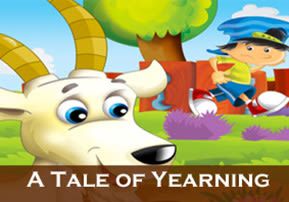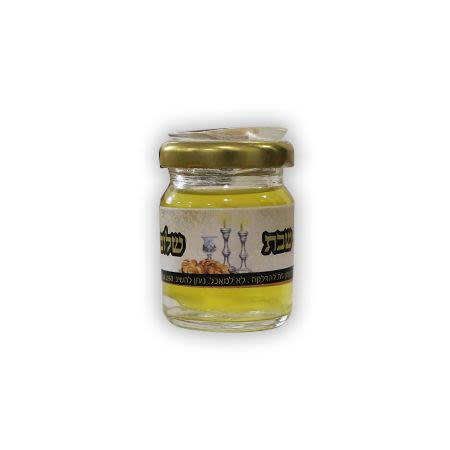
A Tale of Yearning – A Folk Tale
The goat would disappear every day; she was the one that gave the sweetest milk. Where was she grazing? The boy followed her into a deep, dark cave…

The Jewish boy herded his family’s goats, leading them through the Polish forest to a large clearing. While the goats grazed, the boy sat under a tree and daydreamed.
His daydreams always ended up in Jerusalem. He dreamed of its gardens, blazing skies and golden stones. Most of all, he dreamed of seeing the Kotel, what was then called the Wailing Wall, the surviving remnant of Herod’s Temple in Jerusalem where the Divine Presence still dwells. He lost himself in his daydreams for hours while the goats grazed.
The boy let the goats graze wherever they wanted. One of the goats would always wander off and disappear, but the boy never worried about it. The goat always returned at dusk.
The boy lived with his parents in a small house in the forest, near a little village. Each night, the boy’s father taught him the Talmud and told him stories about the great Jerusalem Temple where the Levites sang King  David’s melodies in wondrous harmonies and where miracles occurred every day.
David’s melodies in wondrous harmonies and where miracles occurred every day.
One morning, the boy milked one of the goats and then brought the pail of the milk inside the house. He and his parents drank the milk, and they were all astonished. It tasted abnormally sweet, as though honey was poured into it.
The father turned to the boy. “Find out which goat gave that milk. Better yet, find out where that goat’s been grazing, and have the whole herd graze there.”
The boy had a pretty good idea which goat gave the sweet milk — the one that kept disappearing during the day and returning at dusk. The next morning, the boy tied a cow bell around that goat’s neck with a long rope and led the herd to the clearing in the forest to graze. The goat darted off in the forest and vanished.
The boy chased after it, using the clanging bell as a guide. The goat led him deep into the forest where dense crowds of trees obscured the summer sky. Through a cluster of giant tree trunks, the boy saw the goat racing toward a large, black hole. The goat disappeared into the hole and the boy ran toward it, stopping at its entrance. A cave. The boy hated caves. He hated the darkness, the unknown, the damp.
He could hear the cow bell around the goat’s neck getting dimmer. He had no choice. He ran into the cave, following the clanging bell. And as he ran, he felt relieved he encountered no bats, just darkness and damp rock. He chased after the goat through the cave until he saw a sliver of light ahead that came streaming through an open passageway. The light grew larger, and suddenly he was at the other side of the cave.
The sunlight blinded him. As his eyes adjusted to the light, the Polish forest seemed to have vanished. In its place were date palm trees, olive trees, and a clear, brilliant-blue sky. Everything looked different. It even smelled different, more fragrant. He seemed to be in another land, yet he never felt more at home. In his soul, he felt he was home.
He found his goat under a date tree, grazing. And he knew this was where the goat disappeared to every day. He then saw an old man wearing what looked like a linen nightgown walking a short distance away. The boy tied the goat to the date palm and ran to the old man.
“Where am I?” the boy asked.
“The holy city of Jerusalem,” the old man said. “We’re just outside the city walls.”
Jerusalem! How is it possible? Could it be that cave is one of the caves designated to transport the bones of the righteous to the Land of Israel at the end of days? Dozens of questions flashed through the boy’s mind, and yet he had one burning thought. A miracle had occurred, and he wanted to thank G-d for it. “Can you tell me how to get to the Kotel?” the boy asked.
“I’ll take you,” the old man said. “I’m going there myself.”
They walked through one of the large city gates and through a crowded market filled with brightly colorful fruits and exotic spices until they finally reached the Kotel. The boy took leave of the old man, rushing to the stone wall where generations of Jews prayed and cried for the rebuilding of the Temple. He placed his hands on the ancient stones, and tears began to flow. He prayed aloud, saying, “Master of the Universe, thank you for bringing me to the exact spot I’ve been yearning for my entire life. Please bring my parents here too so we can all serve You together in the land You gave us.”
Just as he said this, the goat broke free from the rope that tied him to the date tree, darted off into the cave and returned back to the boy’s home. When the boy’s parents saw the goat return without the boy, they became panicked. They thought the worst. The goat dashed off again into the forest, and the boy’s parents followed. The goat led them to the cave.
The boy’s parents entered the other side of the cave, discovering they were in the Land of Israel. They decided to find their way to the Kotel to ask G-d to help them find their son. And when they arrived at the Kotel, they saw their son with tears streaming down his eyes, pouring his soul to G-d. Reunited, the boy and his parents embraced and decided to stay in Israel, the land of their dreams.
* * *
Throughout the ages, there have been various versions of the classic folk tale about getting to the Land of Israel through a cave. Generations of Jews told these tales as an intense expression of longing for the Jewish homeland, as well as hope for escaping the crushing persecution and poverty of exile. In our own time of economic instability, political uncertainty and rising antisemitism, many Jews are once again longing to come home.
Which makes this tale of yearning just as appropriate as it was in pre-Holocaust Europe.
And for those who aren’t yet yearning to come home, Rebbe Nachman of Breslev has some advice: “Pray to G-d to give you desire and yearning for the Land of Israel. Then you will succeed in reaching there” (Advice, p. 29).











Tell us what you think!
Thank you for your comment!
It will be published after approval by the Editor.